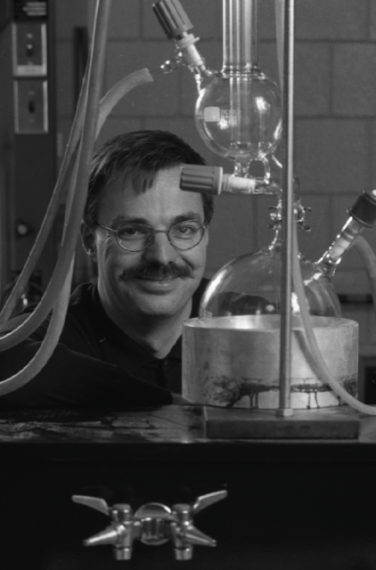Michael Denk

Find Related People by Keyword
Education and Employment Background
Dr. Michael Denk received his PhD from Technische Universität München, Munich, Germany in 1992. Between 1992 and 1994, he held a position as Humboldt Fellow at the University of Wisconsin at Madison. Between 1994 and 1995 he was Assistant Professor at Purdue University in Indianapolis, Indiana, USA. Then, from 1995 to 2001, he was an Assistant Professor at the University of Toronto. Denk joined the Department of Chemistry at the University of Guelph in 2001 where he is now an Associate Professor.
Research Themes
Denk’s research covered several areas in organic and inorganic chemistry, including carbenes and their analogs, carbenium salts, silicon, germanium and tin chemistry, volatile metal complexes, ionic liquids, and more. His research has led to three patents in the field of chemical vapor deposition processes, semiconductors, and thin films and a patent in the field of remediation of toxic halocarbons like DDT. Key areas of focus include:
-
Co-enzymes, hydrogenases and hydride transfer reactions under biological conditions. The transfer of hydrogen is one of the most fundamental biochemical processes and required by all living organisms. In 2018, Denk’s group identified a new mechanism of toxicity by which halocarbons can disrupt hydride transfer systems in cells. The previously unknown reaction has far-reaching implications for medicine, drug design, remediation of halocarbons, and synthetic chemistry.
-
Computational chemistry. Computational chemistry, in particular the ability to predict the outcome of reactions through precise thermochemical calculations has made significant progress in the last decades. Our group has used computational chemistry since 1989 to identify interesting experiments and to better understand puzzling results. Some of the group’s last work can best be described as computational biochemistry studying hydrogen transfer reactions and hydrogen storage. The group’s own 64 core cluster allowed the treatment of fairly large bio-relevant molecules with the high accuracy CBS-QB3 method).
Highlights
- Guelph 150 Award, University of Guelph for invention “Compounds and methods for the reduction of halogenated hydrocarbons,” 2017
- Natural Sciences and Engineering Research Council of Canada Grant, 2012-2016
- Canada Foundation for Innovation Grant, 2006
- Member of the Japanese Society of Silicon Chemists, 1996-present
Media Coverage
- Research Outreach: Classic biomolecules continue to surprise with unexpected reactivity